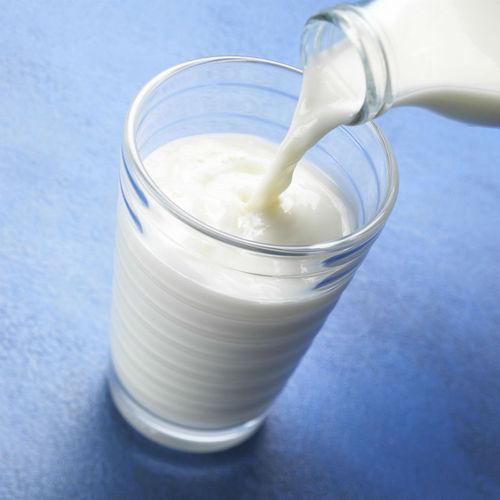
By Ryan Wallace
Long-held beliefs about milk's health benefits may need to be put out to pasture, according to a new study. (Photo: Thinkstock)
For decades, we've been told that milk "does the body good," but too much of a good thing could take a toll on our health, according to new research.
Contrary to popular belief, drinking large amounts of milk each day does not lower a person's risk of bone fractures and instead may be associated with a higher rate of death, according to a new study. This is counterintuitive to what has long been championed by some doctors and nutritionists: A diet rich in milk products can build strong bones and reduce the likelihood of fractures for those at risk for age-related bone loss.
The idea is simple. Our bodies do need calcium to build and maintain healthy bones as well as aid in other important tasks, such as regulate the heart's rhythm and help blood to clot. And when it comes to food sources, milk and other dairy products have among the highest concentration of calcium per serving. However, a growing body of research suggests that calcium alone does not lower the risk of fractures because the body cannot absorb the calcium it needs without the help of vitamin D. And milk is also high in two types of sugar — lactose and galactose — that have proven to speed up the aging process in animals by increasing oxidative stress and chronic inflammation.
The goal of the current study was to find out if these sugars had the same effect on humans. So researchers analyzed data from 61,433 women (ages 39-74 years) and 45,339 men (ages 45-79) who completed questionnaires inquiring how often they consumed 96 common foods, including milk, yogurt, and cheese. The women were tracked for an average of 20 years, while the men were tracked, on average, for 11 years. The number of deaths and fractures in both groups were recorded.
"We indeed found higher oxidative stress and inflammation in women and men who consumed several glasses of milk per day compared with those who drank lower amounts," lead author Karl Michaëlsson told Yahoo Health. Michaëlsson and his research team also found no reduction in fracture risk with higher milk consumption. Furthermore, women who drank more than three glasses of milk a day (average 680 ml) had a higher risk of death than women who drank less than one glass of milk a day (average 60 ml).
Michaëlsson was quick to point out that these findings only show an association between milk and an increased risk of death, and they do not prove a cause-effect relationship. That said, oxidative stress, which occurs when the oxygen in our bodies reacts with molecules called free radicals, has been linked to several health risks, including diabetes, cancer, heart disease, and age-related bone loss. Chronic inflammation has been linked to a similar and wide range of diseases, including stroke, depression, cancer, and heart disease.
Still, despite the findings, Michaëlsson said that both children and adults should not omit milk or other dairy products from their balanced, healthy diet. "It's too early to make specific recommendations based on our findings," he said. "This study should not be viewed in isolation but as one piece in the puzzle of evidence."

Comments
Post a Comment